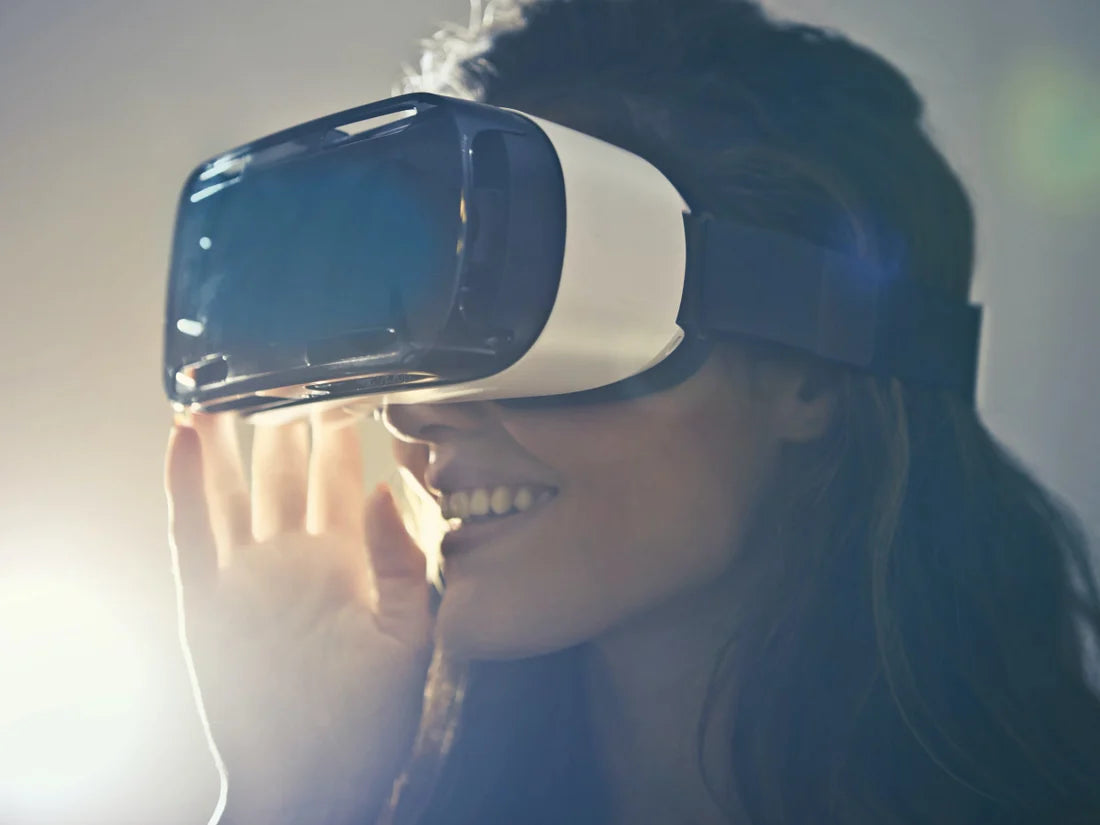Virtual Reality and Mental Health: How VR is Being Used for Therapy and Wellness
You've heard of VR.
The ability to take you to other virtual worlds. To play games and immerse yourself in entertainment like never before. To connect with others and indulge in experiences using technology that's undoubtedly the future.
It's terrific stuff, but it's not just limited to gaming and having fun.
While virtual reality (VR) is a technology that creates an immersive, computer-generated environment that can simulate real-life experiences, this technology has also been used in other, more unique fields.
One such field has been using VR as a potential tool for mental health treatment and wellness.
Mental health conditions such as anxiety disorders, phobias, post-traumatic stress disorder (PTSD), and depression affect millions of people worldwide.
While there are many solutions out there, VR therapy has shown promising results in treating these mental health conditions by creating a safe, controlled, and immersive environment for patients to confront and overcome their fears and anxieties.
Let's get into it.
What are the Benefits of VR Therapy for Mental Health?
The benefits of VR therapy for mental health are numerous.
Firstly, custom-curated and designed virtual spaces provide patients with a safe and controlled environment to confront their fears and anxieties.
This controlled environment allows therapists to adjust the intensity of the virtual stimuli according to the patient's comfort level.
Moreover, VR therapy allows patients to access repeat exposure to their fears and anxieties without the risks associated with real-life exposure. This repetition helps to desensitize the patient to their fears and anxieties gradually.
Lastly, VR therapy provides a unique and engaging experience for patients that can increase their motivation and commitment to therapy.
However, this just scratches the surface.
Virtual realities can be created to help with so many different aspects of treating mental health conditions.
This includes helping patients improve their mindfulness abilities, to handle stressful situations, and to identify and find balance with their emotions.
All of this combined allows for an effective therapy that actually gets results.
In April 2022, Manchester University carried out the most extensive VR wellness study of all time that used virtual coaches to help treat conditions like psychosis, eliminating the need for a real-life coach.
The results and successful treatment rate were groundbreaking.
The Types of VR Therapy for Mental Health
There are different types of VR therapy for mental health, and the choice of therapy depends on the patient's mental health condition.
Exposure therapy is a commonly used VR therapy for anxiety disorders, phobias, and PTSD.
During exposure therapy, the patient is gradually exposed to the feared stimuli in a controlled virtual environment until they can face the stimuli without fear.
Cognitive behavioral therapy (CBT) is another type of VR therapy that focuses on changing negative thought patterns and behaviors contributing to mental health conditions such as depression and anxiety.
Some Examples of VR Therapy for Mental Health
Several studies have shown the effectiveness of VR therapy for mental health.
For example, a study published in the Journal of Anxiety Disorders found that VR exposure therapy was more effective than traditional exposure therapy in treating social anxiety disorder.
Another study found that VR exposure therapy was effective in treating PTSD.
Additionally, a study published in JAMA Psychiatry found that VR-based, self-guided CBT effectively treats depression.
As you can see, while this is a new and steadily-expanding industry, the chances are that the full potential of VR and its effects on mental health is still waiting to be discovered, and we have a lot to look forward to within this space.
Challenges Facing the Use of VR Therapy for Mental Wellness
Despite the promising results of VR therapy for mental health, several challenges face its widespread use.
One of the main challenges is the cost of the technology, which can be expensive and may not be accessible to everyone.
Another challenge is the lack of trained professionals who can use VR technology in mental health treatment.
Additionally, some patients may experience nausea or motion sickness when using VR technology, limiting its effectiveness.
Conclusion
VR therapy is an innovative and promising mental health treatment and wellness tool. It provides a safe and controlled environment for patients to confront their fears and anxieties and can be an engaging and motivating experience for patients.
While there are challenges facing the use of VR therapy, its potential benefits make it a worthwhile investment for mental health treatment and wellness.








